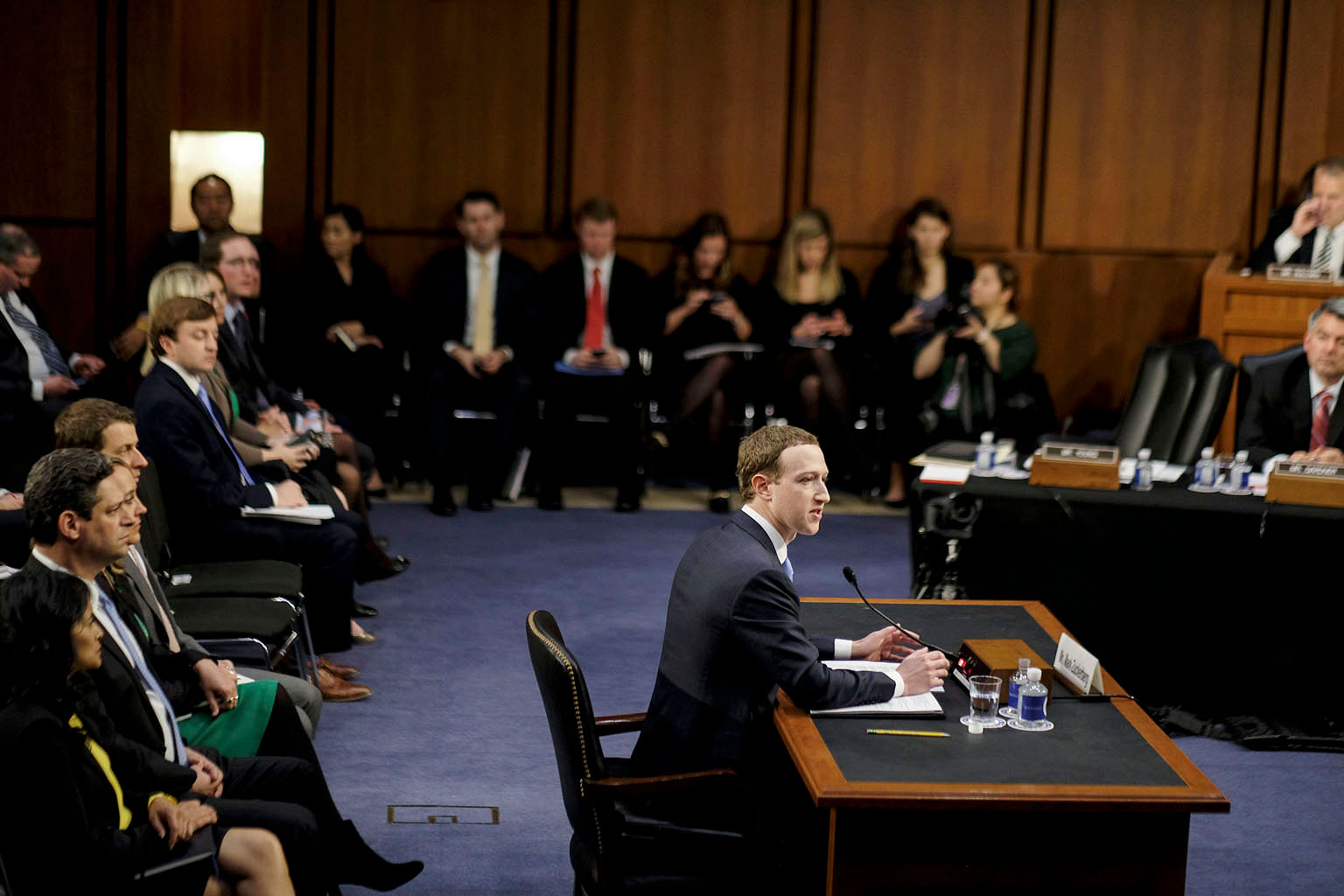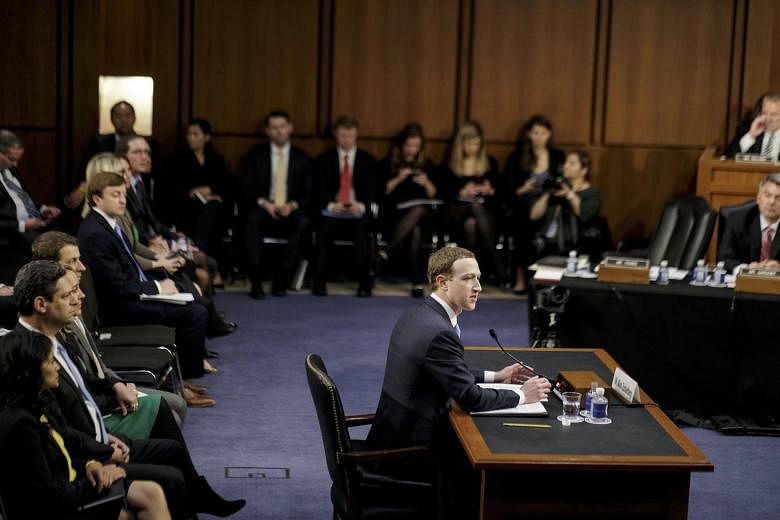China's decision to keep out Facebook has been vindicated
Philip J. Cunningham
China Daily, China
When gregarious Internet evangelists bearing gifts come knocking at your door, it is probably best not to take their wares or let them in,especially if national sovereignty is at stake.
Saying no to the latest in foreign invasive technology, as sensible as it seems now, hurt China's image several years back when the US' Internet darlings could do no wrong.
When Beijing blocked Facebook and Google, there was a great media hue and cry about "freedom", and barriers to trade, but almost no talk about how the Silicon Valley giants not only work hand in glove with the Central Intelligence Agency and National Security Agency, but also serve as formidable intelligence agencies in their own right. Unlike their Beltway counterparts, the Bay Area operations spy on millions and rake in obscene profits with little or no congressional oversight.
The Cambridge Analytica scandal is a perfect storm of politics, dirty tricks and data abuse; the way they took charge of Donald Trump's digital campaign is and shall remain a potent reminder of what goes wrong when the "friends" and "likes" of Facebook accounts are used to divide, confuse and disenchant large portions of the electorate.
After years of hemming and hawing and foot-dragging on the key question of keeping private data private, the latest flurry of half-apologies and last-minute public relations push does nothing to fix the core problem.
The core business model of Facebook is collecting, exploiting and selling data, mainly to advertisers, but nefarious political operators such as Cambridge Analytica are clients, too. Facebook's legal team keeps it one step ahead of the law; it has long ignored complaints about privacy violation, and it lacks adequate checks and balances to correct itself.
Violation of privacy is key to Facebook's rise and imminent fall. It's what happens when a greedy company can't get enough and wants more and more and more, without concern for the privacy of others, without thinking through the consequences.
Facebook founder Mark Zuckerberg has gone to great lengths to curry favour with the Beijing authorities, all to no avail. Chinese analysts rightly surmised that Facebook was a "Trojan horse" that they could do without.
Britain's Channel 4 expose on Cambridge Analytica chillingly suggests that the marshalling and manipulation of Facebook data can swing an election even in the most mature democracies. If so, what chance do struggling democracies stand in withstanding information abuse and fake news from Facebook and the other Internet giants?
Facebook is yet to explain how the private preferences, likes, dislikes, friends and friends of friends and information profiles of some 50 million Facebook users became fodder for political skulduggery. Cambridge Analytica, co-founded by the maverick, and sometimes gleefully malicious election adviser Steve Bannon, was funded by right-wing computer engineer Robert Mercer, both Americans.
But most of the work and day-to-day operations, including, apparently, the outsourcing of skulduggery, were based in Britain and staffed by non-Americans, which raises the question of foreign interference. Manipulated data and dirty tricks also tilted one of the most consequential polls in European history, the Brexit vote, heralding Britain's withdrawal from the European Union.

There's an irony in the US government crying foul to foreign meddling in US elections when the US government has a history of meddling second to none. But the vulnerability of free and open societies to cash-driven influence-peddling has hit close to home.
It raises the question of the role that a billionaire such as Mercer can play in throwing the outcome of a national election or plebiscite. If the US and Britain, two exemplars of modern democracy, can so quickly lose their way under the triple threat of targeted ads, divisive messaging and dirty tricks, what hope does anyone else have to withstand a similar onslaught?
Recent revelations will almost certainly lead to more shockers, but the Cambridge Analytica data harvesting case is enough to validate the view of those who didn't want the likes of Facebook and Google colonising and exploiting the information ecology of China. China can watch Facebook explode and collapse with a certain schadenfreude, but it's nothing to be smug about since China also has to wrestle with the issue of data security while taming the influence of homegrown Internet giants.
Internally, the US and China face similar challenges on how best to manage a vast information ecosystem, but for the moment, at least, China can watch the Facebook smack-down with an "I told you so".
Data profiteers must pay damages
Usama Khilji
Dawn, Pakistan
Our free use of social media provides an invaluable amount of data - "the new gold" - to corporations that sell it to individuals and other companies. The latter need this to target users for advertising based on their habits analysed through their online activity.
The latest Cambridge Analytica leaks through a whistleblower in the company tell us that a researcher acquired information of around 50 million Facebook users through a personality quiz application on Facebook that he had promised would be used only for academic purposes.
But he ended up selling it for US$7 million (S$9 million) to Cambridge Analytica. The latter used it to bombard citizens with political advertisements, based on their personal profiles, for their political clients in the US during the presidential elections, in the UK during the Brexit referendum, in Kenya's presidential polls, and in Bihar state elections.
The leaks raise a number of critical questions about personal rights to privacy and the protection of our data, social media corporations' responsibility, and the ethics of political advertising on the Internet.
Governments need to get strict with breaches of privacy by corporations, including Internet service providers, telecom companies, as well as social media platforms that have access to personal details of users in the form of big data which is used for commercial purposes often without users' consent.
Companies that profit off our data should be made to pay damages under the law to users when their information is sold without their consent to deter the invasion of privacy.
As far as the Cambridge Analytica leaks are concerned, there are also valuable lessons to be learnt regarding the ethics of not only corporations, but also public relations firms hired by political parties for election success. Whereas traditional political advertising requires strategising that considers demographics and viewership or readership numbers and transmits effective messages accordingly, political advertising on social media is fuelled by the detailed personal data of habits and views, which has the potential to be extremely manipulative in using detailed psychological techniques. The question is, how ethical is such advertising, and whether or not it should be permissible under the guidelines. The Election Commission of Pakistan should look into this domain.It is imperative for our laws to keep up with the dynamic changes in technology. At the same time, we must be wary of any moves by the state that may compromise our privacy and speech rights under the garb of protection.
• The View From Asia is a compilation of articles from The Straits Times' media partner, Asia News Network, a grouping of 23 news media.

